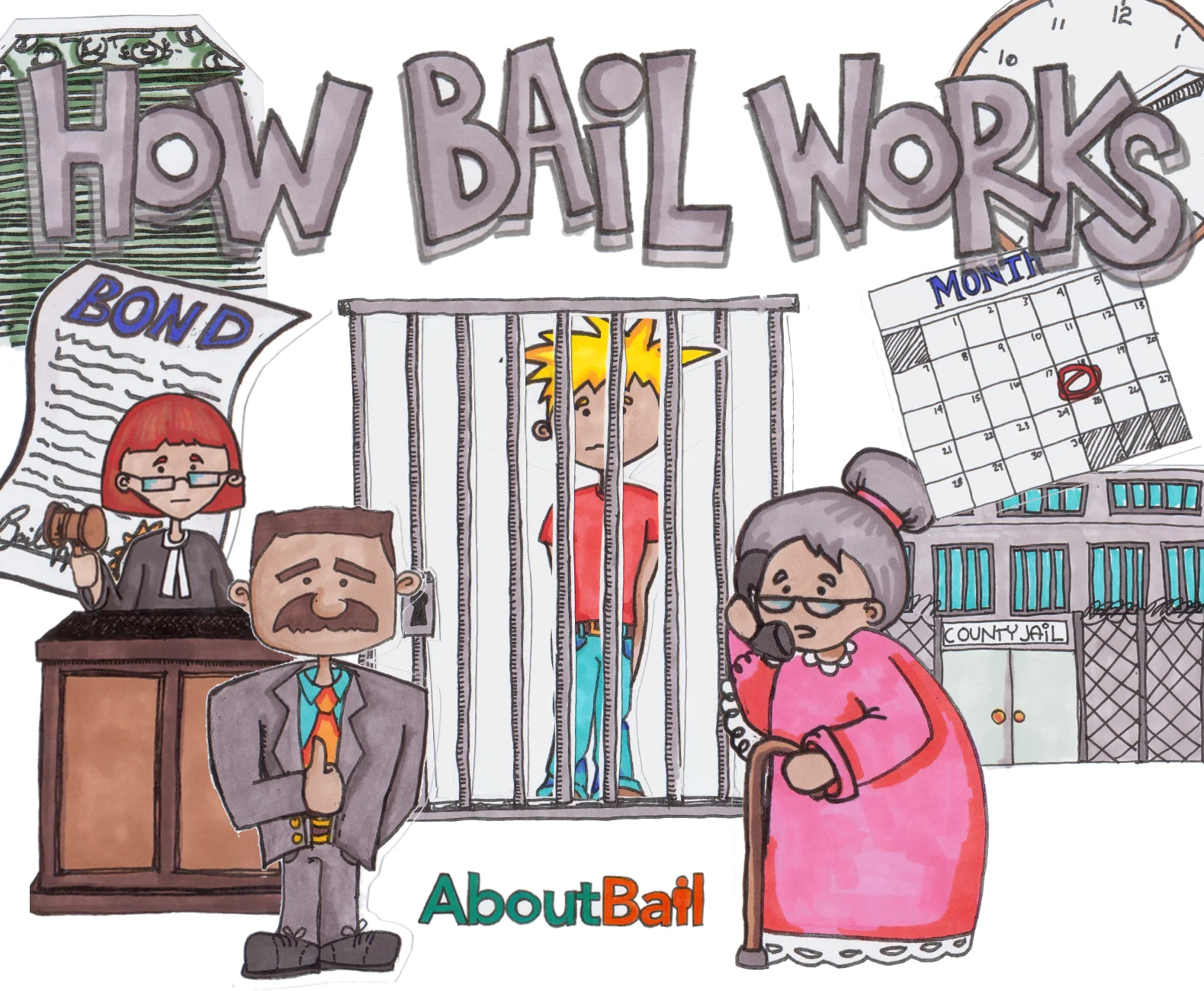Navigating the Legal Maze: Bail Bonds Explained for Beginners
Navigating the intricacies of the legal system can often really feel like passing through an overwhelming labyrinth, especially when it involves comprehending Bail bonds. For beginners entering this strange terrain, understanding the complexities of Bail bonds is crucial in making sure a enlightened and smooth process. From the fundamentals of just how Bail bonds work to the various types offered, each element plays a crucial role in assisting in the launch of people waiting for trial. As we dig much deeper right into this subject, clearness will certainly be dropped on the bail bond process, the connected expenses, and valuable pointers for efficiently engaging with Bail bondsmen.
Fundamentals of Bail Bonds
Understanding the basic concepts of Bail bonds is necessary for navigating the lawful process successfully and responsibly. Bail bonds function as an economic guarantee that a defendant will show up in court as needed. When an individual is apprehended, they may be granted the opportunity to publish Bail in order to safeguard their release till their court date. If the individual can not afford the full Bail quantity set by the court, a bail bond representative can be employed to provide the needed funds on their behalf.
Basically, a bail bond is a contract in between the accused, the court, and the bail bond representative - bail dayton ohio. The agent consents to pay the complete Bail amount if the offender fails to show up in court, for a non-refundable cost typically set at 10% of the total Bail. This cost works as the representative's earnings for taking on the danger of the accused's non-appearance. By recognizing these fundamental principles of Bail bonds, individuals can make informed decisions when confronted with lawful difficulties that require monetary help for their launch.
Kinds Of Bail Bonds
The most common kind is a cash bond, where the offender or a loved one pays the complete Bail quantity in cash money. One more option is a guaranty bond, where a bond bondsman pays the Bail on part of the offender for a charge, normally around 10% of the overall Bail amount. Comprehending these different types of Bail bonds can aid people browse the legal procedure a lot more efficiently.
Bail Bond Process Explained
If the defendant can not manage the full Bail amount, they can seek the services of a bail bondsman. The accused or their liked ones pay the bondsman a non-refundable fee, generally a percentage of the complete Bail amount, to safeguard a bail bond.

Comprehending Bail Bond Prices
Upon securing a bail bond through a bail bondsman, people encounter an essential aspect of the legal process: the financial obligations tied to the bail bond. Bail bond expenses typically include a non-refundable cost, usually around 10% of the overall Bail quantity set by the court.
In enhancement to the costs, security might be needed to protect the bail bond. Security can be in the form Discover More Here of home, beneficial assets, or a co-signer that ensures settlement if the defendant skips Bail. The security serves as a back-up plan for the bail bondsman in instance the offender absconds.
It's vital for individuals looking for Bail bonds to totally recognize the costs included and the regards to the arrangement prior to proceeding. By being informed concerning bail bond costs, people can navigate the legal procedure extra effectively and make knowledgeable decisions.
Tips for Collaborating With Bail Bondsmen

Furthermore, it's important to provide precise info regarding the offender and their situation. This consists of details such as their complete name, day of birth, the area of their arrest, and the charges they are dealing with. bail bond agent dayton ohio. Providing insufficient or inaccurate information can bring about hold-ups in the bail bond procedure

Conclusion
Finally, recognizing the essentials of Bail bonds, the various kinds readily available, the procedure involved, and the expenses related to them is crucial for navigating the lawful system. By dealing with Bail bondsmen and following these pointers, people can make certain a smoother and extra efficient Bail procedure. When dealing with Bail bonds to avoid any type of unnecessary issues or misconceptions., it is read important to be educated and educated.
Essentially, a bail bond is a contract between the accused, the court, and the bail bond agent. One more choice is a guaranty bond, where a bond bondsman pays the Bail on part of the offender for a charge, typically around 10% of the overall Bail amount. The accused or their liked ones pay the bondsman a non-refundable charge, usually a percent of read review the total Bail quantity, to secure a bail bond.Upon securing a bail bond with a bondsman, people experience an essential element of the lawful process: the financial responsibilities tied to the bail bond. Bail bond costs usually involve a non-refundable cost, typically around 10% of the total Bail quantity set by the court.